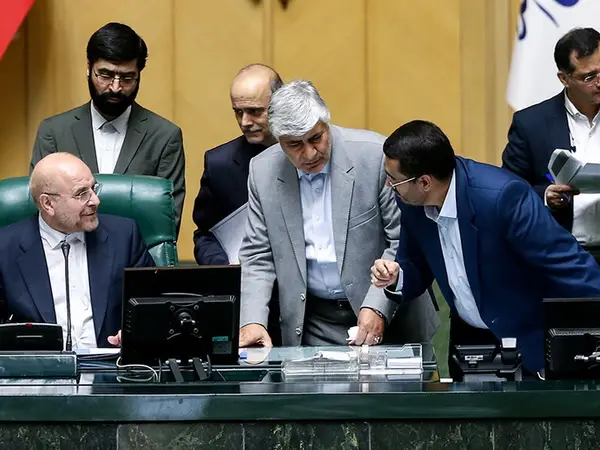An Iranian lawmaker who has disclosed a major case of financial corruption at the parliament says he has been barred from speaking during legislative sessions.
Ahmad Alirezabeigi, the member of parliament from Tabriz says he has not even been allowed to make brief comments on the proceedings at the Iranian Parliament (Majles). He added that the authorities have muted his desk microphone.
"I have asked twice to make brief comments on the legislations being discussed at the Majles but I have been denied the permission to speak," Alirezabeigi told Etemad Online. He added: "I expect the Majles presidium to intervene in the matter and defend my rights as a member of parliament."
His comment sounded odd as it is the presidium that allows MPs to speak or mutes their microphone to bar them from commenting. Alirezabeigi said that presidium members should resign if they cannot restore lawmakers' rights.
He reiterated that no one may prevent a member of the parliament from expressing his views during sessions. "Article 75 of the Majles internal regulations in particular says that lawmakers should be given a chance to respond to accusations made against them at the parliament," he said.
Following the disclosure involving nearly 140 SUVs given to lawmakers at extremely discounted prices to bribe them to stop an impeachment motion against a former industry minister, Alirezabeigi has been questioned by a prosecutor and an investigation committee at the parliament.
The lawmaker told Etemad Online that he thinks "a secret power is trying to prevent me from fulfilling my responsibility as a member of the parliament," however, he did not name anyone.
Alirezabeigi said elsewhere that even the ethics committee, which questioned him following the disclosure about the bribes is not legally authorized to bar him from speaking at the Majles.
Majles Speaker Mohammad Bagher Ghalibaf, a former IRGC general, has been often criticized by some lawmakers and other politicians for running the parliament like a military garrison. Khabar Online Website has quoted lawmakers as having said that "by running the parliament like a military center, Ghalibaf has made the legislature useless."
According to Khabar Online, criticism of Ghalibaf's leadership at the Majles surfaced when he stopped impeachment motions for ministers in a bid allegedly to support President Ebrahim Raisi.
A video posted on Fararu website on Saturday showed Ghalibaf threatening lawmakers to name those who do not work hard enough or refuse to take part in voting.
At another level, politicians in Iran have often criticized Ghalibaf and other lawmakers for making the parliament so weak that key decisions on issues such as raising fuel prices or the final decisions on the annual budget are made at a meeting between the heads of the three government branches rather than by lawmakers.
Other key issues such as the decision to accept the terms of the international financial watchdog, the FATF have been referred by Supreme Leader Ali Khamenei to the Expediency Council, apparently as he has deemed the Majles not knowledgeable enough about the matter.
The Council is a collection of aging clerics and demoted politicians susceptible to pressures by Khamenei’s henchmen.
Meanwhile, the Supreme Leader makes many decisions such as sending troops to Syria or giving weapons to Russia to help Putin in the war against Ukraine without consulting the parliament.
